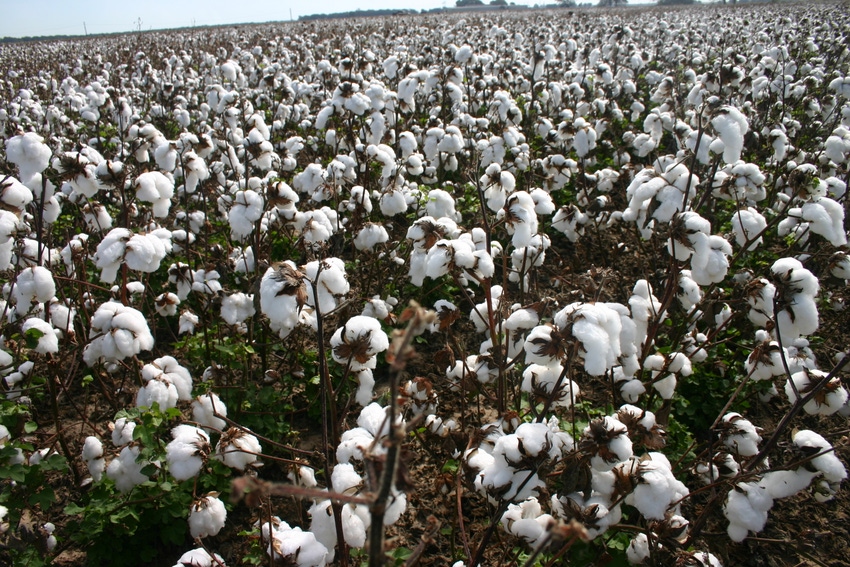
How is the new farm bill debate shaping up? And what are the early reads from farm country on the recently passed tax bill?
Those were two of the big questions at the Third Annual Simmons Agri Summit held Feb. 1 in White Hall, Ark. Shortly after the event, Delta Farm Press spoke with David Bridgforth (attorney with Ramsay, Bridgforth, Robinson and Raley LLP in Pine Bluff, Ark.) and Freddie Black (Arkansas Regional Chairman at Simmons First Bank), to provide some answers.
Among their comments:
On what questions are being generated regarding a new farm bill…
Bridgforth: “From a farm bill perspective, the current bill will expire on Sept. 30. The big question is if we’ll get a new farm bill for the start of 2019. Or, will there be an extension of the current bill?
“There are lots of issues in D.C. — largely spending issues — impacting the timing of those questions. How those are resolved will have a big impact on whether we get a new bill or get an extension. Without getting the spending issues tackled, it keeps Congress from focusing on matters like the farm bill.
“Hopefully, Congress can come to agreements on spending. If that happens in a timely manner, there’s still a realistic chance for a new farm bill in 2019. If those issues drag on and on, or the longer they drag on, the possibilities of a new bill are low.”
During the State of the Union Address, the president didn’t mention the farm bill.
Black: “Yes, I don’t think it was mentioned. The secretary of agriculture was the designee that night and not present.”
Bridgforth: “One thing the tax bill did, to my understanding, is the (Congressional Budget Office) had completed a good bit of the work on January baselines. Once the tax bill was passed, they were asked to go back and incorporate that.
“That has delayed the release of the baseline that will be used to draft a new farm bill. How long that delay might be could impact the congressional committees’ ability to finalize and score their versions of a farm bill. It’s hard to write and pass a farm bill when you don’t know how much money you have to spend.”
Crop insurance
Assuming a new farm bill is passed, is it your expectation that they’ll stick with the same kind of crop insurance programs currently in place?
Bridgforth: “If we get a new farm bill, I think it will be very similar to the current bill, particularly with the commodity title. However, I do think there will be a seed cotton component.”
Black: “On the insurance portion, through irrigation the South has mitigated the biggest risk. The Midwest hasn’t done that. So, in that regard, crop insurance is much more important for them.”
Southern producers “are buying crop insurance now because it’s cheaper and subsidized. Because they’re irrigated there are a lot of large farms that are highly improved in the South that didn’t buy multi-peril insurance for years. They’d buy coverage for hail and wind damage but not the more sophisticated insurance products that exist today.”
Bridgforth: “My feeling is the (new farm bill’s) crop insurance provisions, at least as they leave the House Agriculture Committee, will be very similar to current law. I know there are efforts — and I believe the White House’s FY18 budget recommended — to try and put limits on the amount of premium subsidies a producer may receive.
“If that happens, I think it would come from an amendment from the floor and, in my opinion, it would be detrimental to the viability and effectiveness of the crop insurance program. Hopefully, wiser heads will prevail and we will not see such provisions in the final version of the next farm bill.”
ARC/PLC
So, you still see the ARC and PLC programs coming back?
Bridgforth: “I think they will and don’t envision many changes to them. I anticipate there will be no new money for the farm bill — and the baseline will likely be down, which will make it difficult to make significant changes. Anytime you make changes, you have to figure out how much they’ll cost and how you will pay for them.
“As I mentioned earlier, I do think seed cotton will be brought in, or a seed cotton program in some form. However, I understand that it is expected to be paid for with changes to generic base and it is supposed to be budget-neutral.
“What they’ll do with dairy is a big question. I don’t think they have a mechanism in place to pay for that except to take money from somewhere else. Who knows how that could play out? This is one reason it will be much easier to pass a new farm bill if a supplemental disaster bill containing the seed cotton and dairy provisions is passed.
“But as far as ARC and PLC coverage for current covered commodities, I’d be surprised if there are major changes — even with the reference prices. I do think producers will be given an opportunity to reselect which programs to apply for the years covered by the new farm bill. They made elections with the 2014 farm bill on PLC or ARC and I think they’d be able to make elections again. That could lead to a shift in acreage allocations between the two programs.
“I suspect there will efforts by some groups to try and adjust or increase reference prices for particular commodities. But that would have to be paid for from some other program and that would be a challenge.”
Common concerns
On common concerns expressed by Mid-South farmers on the tax bill…
Bridgforth: “I think farmers and their accountants are still trying to digest a good bit of what’s in that tax bill and what it’ll provide.
“There’s been a lot of talk and questions about the provision dealing with selling and dealing with co-ops. Hopefully that will be rectified in Congress as it seems very clear that it was an unintended consequence of the tax bill. It needs to be addressed but how and when remains to be seen.
“As far as the tax implications of the bill, to be honest I’ve not yet had a bunch of questions from farmer clients or their CPAs. It’s complicated legislation and it can often be very difficult to figure out the practical implications.”
Anything else?
Bridgforth: “Hopefully, both sides of the aisle can get together and resolve the issues taking attention away from important matters like the farm bill. An extension of the current farm bill wouldn’t be the worst thing, but it would be kicking the can down the road.”
Black: “From a financing standpoint, it’s very important for our producers to have certainty in the future. When you go into a cycle where you’re doing crop production loans you need to know what the rules are.
“Whether they’re good or bad you need to know those rules. Last time, we were shooting in the dark during the winter planning season. I don’t doubt we could be right back there, again. It makes it doubly hard for everyone involved.
“We don’t need a situation where we’re in February or March of 2019 wondering if we’ll have an extension or a new bill.”
Bridgforth: “I agree wholeheartedly with that.”
About the Author(s)
You May Also Like






